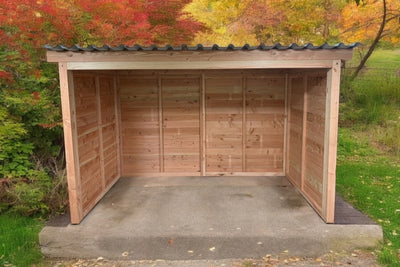Composting in winter: Tips for the cold season

Winter poses particular challenges for composting, but with the right care and a few simple measures, you can produce high-quality compost even in the cold season. Here are some tried and tested tips to keep your compost heap active even in winter:
1. keep the compost warm
During the cold months, the activity of the microorganisms responsible for the decomposition of organic materials decreases. To keep the compost heap warm, you can cover it with an insulating layer of straw, leaves or old carpets. This layer will help to retain the heat inside the heap and continue the decomposition process.
2. regular turning, even in winter
The compost should also be turned regularly in winter to provide it with oxygen. Turning promotes the activity of the microorganisms and prevents the compost from becoming too wet. Although the temperatures are lower, regular turning keeps the compost aerated and active.
3. adjusted addition of material

In winter, it is particularly important to maintain the correct ratio of "green" and "brown" materials. Be sure to mix dry materials such as leaves and twigs into the wet kitchen waste to ensure good aeration and drainage. Avoid adding large amounts of wet material at once as this can lead to compaction and rotting.
4. use of the winter sun
Place the compost heap in a location that receives as much winter sun as possible. The sun's heat can help to warm the heap during the day, which supports the decomposition process. A southern exposure or a place near a wall that stores heat can be helpful here.
5. keep moisture in balance
During the winter months, the compost heap can become too wet due to rain, snow or frost. Make sure that excess moisture can drain away by covering the compost well and keeping an eye on the drainage. If necessary, add dry material to regulate the moisture.
6. protection from frost

To protect the compost from extreme temperatures, you can transfer it to an insulated compost bin or add an extra cover of wooden pallets, straw bales or similar material. This protective layer keeps the heat inside better and ensures that the composting process continues even when it freezes.
7. be patient
Despite all the measures taken, composting will be slower in winter. It is important to remain patient and maintain the compost regularly. As soon as the temperatures rise again in spring, the composting process will speed up again.
Conclusion
With the right measures, you can continue to compost effectively in winter and produce high-quality humus for your garden. With insulation, regular care and an appropriate addition of material, your compost heap will remain active and productive even in the cold season.


